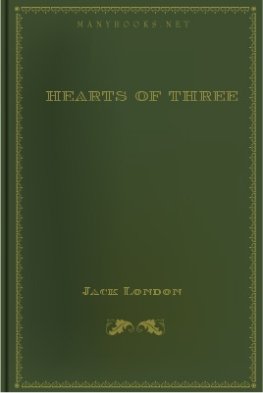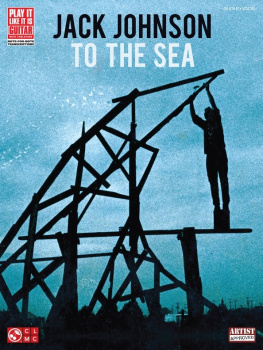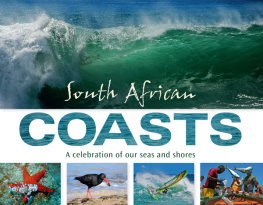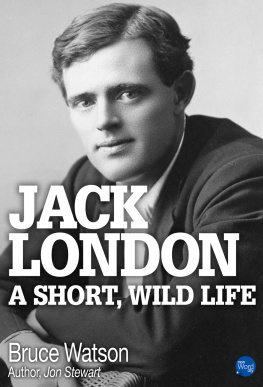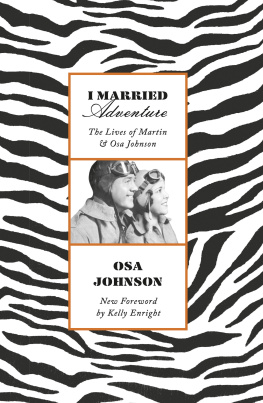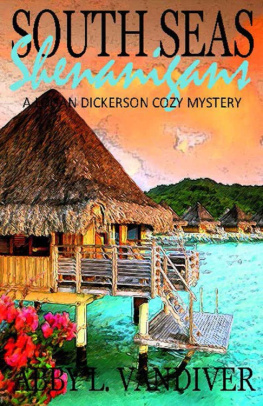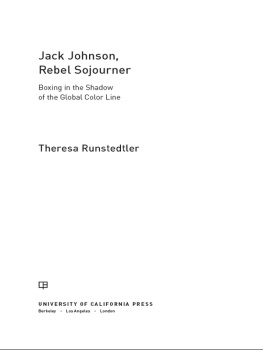INTRODUCTION
Accounts of dare-devil exploits have always been read with deep interest. One of the salient features of human nature is curiosity, a desire to know what is being said and done outside the narrow limits of one's individual experience, or, in other words, to learn the modes of life of persons whose environment and problems are different from one's own environment and problems. To this natural curiosity, the book of travel is particularly gratifying.
But when we add to the fact that such a narrative treats of races and conditions almost unknown to the inhabitants of civilised countries the consideration that those voyageurs to whom the adventures fell are men and women already prominently before the public, and so deserving of that public's special confidence, the interest and value of such a work will be seen to be extraordinarily enhanced.
The cruise of Jack London's forty-five-foot ketch Snark was followed eagerly by the press of several continents. The Snark alone was enough to compel attention, but the Snark sailed by Jack London, a writer of world-wide celebrity, was irresistible. The venture caught the world's fancy. Periodicals devoted columns to a discussion of the Snark and her builder, and to the daring crew who sailed the tiny craft for two years through the South Seas.
When it became known that such a voyage was in contemplation, hundreds of persons wrote to Mr. London, begging that he allow them to accompany him. On the other extreme, they were legion who threw up their hands in horror at the mere suggestion. The belief was widespread, and was, indeed, almost universally expressed, that the famous writer and his fellows were setting out on a cruise from which there would be no return. As an instance of the capriciousness of things maritime and the fallibility of human judgment, it is interesting to reflect that the Snark, a ten-ton yacht, the stanchness of which was greatly doubted, travelled her watery miles without mishap, and is still afloat, while the Titanic, the most wonderful craft that ever put out to sea, the last word in shipbuilding, declared unsinkable, bore over a thousand of her passengers to death, and lies to-day, a twisted mass of wreckage, irrecoverably lost in the depths of the Atlantic.
Hardships there were a-plenty for the little yacht's crew, of which seasickness was not the least. The Snark was not a "painted ship upon a painted ocean." Even a seasoned sailor would find it difficult to accustom himself to the pitch and toss of so small a boat. The effect upon the Snark's complement, composed mainly of "landlubbers," may easily be imagined.
Mr. Martin Johnson, who started in as cook, soon became the close friend and chief companion of Mr. London. He was thus enabled to make studies of the South Sea natives, many of whom are unquestionably the strangest creatures in existence. His photographic recordsover seven thousand different negativesare the finest in the world: they are absolutely unique. We have read of some few of the little-known places visited by the voyageurs, in Mr. London's "Cruise of the Snark"; but the present work, being much more detailed and complete, gives the first real insight into life aboard the yacht and among the myriad islands of the South Pacific. The illustrations are from photographs made by Mr. Johnson, with a few from prints by Mr. J. W. Beattie, of Tasmania.
After reading such a narrative, we seem to lose our wonder at the voyages of vessels like the Half Moon, the Pinta, and the Santa Maria. Surely the playing of sea-pranks can go no further. The conclusion seems justifiable that if men are to outdo the exploits of the past, they will only succeed by forsaking the water and mastering the air.
Ralph D. Harrison.
Indianapolis, U. S. A., April 5, 1913.
THROUGH THE SOUTH SEAS
WITH JACK LONDON
CHAPTER I
ON THE TRAIL OF ADVENTURE
p001
Through all my twenty years of life I had been in pursuit of Adventure. But Adventure eluded me. Many and many a time, when I thought that at last the prize was mine, she turned, and by some trickery slipped from my grasp. The twenty years were passed, and still there she wasAdventure!in the road ahead of me, and I, unwearied by our many skirmishes, still following. The lure was always golden. I could not give it up. Somewhere, sometime, I knew that the advantage would incline my way, and that I should close down my two hands firmly upon her, and hold her fast. Adventure would be mine!
I thought, when I made it across the Atlantic on a cattle-boat, and trod the soil of several alien countries of the Old World, that I had won. But it was not so. It was but the golden reflection of Adventure that I had caught up with, and not the glorious thing itself. She was still there, ahead of me, and I still must needs pursue.
In my native Independence, Kansas, I sat long hours in my father's jewellry store, and dreamed as I worked. I ranged in vision over all the broad spaces of a world-chart. In this dream-realm, there were no impediments to my journeying. Through long ice-reaches, p002 across frozen rivers, over snow-piled mountains, I forced my way to the Poles. I skimmed over boundless tracts of ocean. Giant continents beckoned me from coast to coast. Here was an island, rearing its grassy back out of the great Pacific. My fancy invaded it. Or here was a lofty mountain-chain, over whose snow-capped summits I roamed at pleasure, communing with the sky. Then there were the valley-deeps; dropping down the steep descents on my mount, I explored their sheltered wonders with unceasing delight. Nothing was inaccessible. I walked in lands where queer people, in costumes unfamiliar, lived out their lives in ways which puzzled me, yet fascinated; my way led often amid strange trees and grasses and shrubstheir names unguessable. To the farthest limits of East and West I sallied, and North and South, knew no barriers but the Poles. I breathed strange airs; I engaged in remarkable pursuits; by night, unfamiliar stars and constellations glittered in the sky. It is so easy, travellingon the map. There are no rigid limitations. Probabilities do not bother. Latitude and longitude are things unnoticed.





